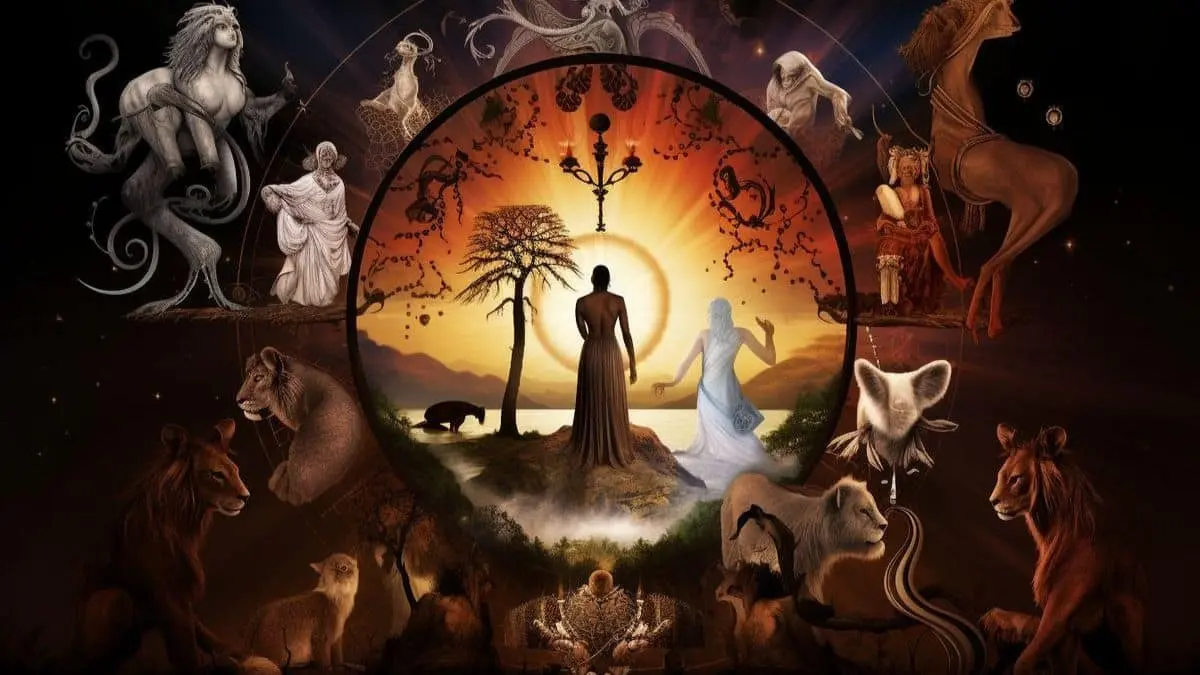In the realms of mysticism, spirituality, and even popular culture, terms like “premonition” and “prophecy” often surface, leading to discussions about their meanings and significance. Both relate to visions or forewarnings about the future, yet they carry distinct connotations. This blog explores the major differences and similarities between premonition and prophecy, helping to clarify these often-confused terms.
Understanding Premonition
What is a Premonition?
A premonition is an intuitive feeling or a spontaneous sensation that something, usually negative, is about to happen. It can manifest as a vague sense of dread, an unexplainable gut feeling, or even a specific vision about an event. Unlike prophecy, premonitions are generally not associated with a divine source or formal declaration; they are personal, often sudden, and may not provide clear details about the event to come.
Examples of Premonitions
Premonitions can occur in various forms, including dreams, a sense of déjà vu, or a sudden, strong feeling of anxiety. For instance, a person may wake up with an inexplicable sense of fear, only to later discover that a tragic event has occurred. While often linked to negative events, premonitions may sometimes hint at positive outcomes, though this is less common.
Understanding Prophecy
What is a Prophecy?
Prophecy is a declaration or prediction about the future, often believed to be delivered by a divine being or supernatural source. Prophets are individuals who claim to receive these messages through visions, voices, or spiritual encounters, and they convey these predictions to others. Prophecies tend to be more structured, explicit, and symbolic, sometimes carrying deeper meanings or moral lessons.
Examples of Prophecy
Throughout history, various cultures and religions have acknowledged prophecies. For example, the Oracle of Delphi in ancient Greece was known for predicting the future, often in cryptic phrases. In religious texts, such as the Bible or the Quran, prophecies foretell events related to spiritual, moral, or world affairs. Famous figures like Nostradamus have also been attributed with prophecies, where their predictions were recorded and interpreted over centuries.

Key Differences Between Premonition and Prophecy
1. Source of Information
- Premonition: Usually perceived as an internal, intuitive feeling. It is often spontaneous and can be experienced by anyone, without any claim of a divine connection.
- Prophecy: Believed to be communicated through a divine or supernatural source. Prophets claim to receive messages from deities, spirits, or higher powers, making it a more formal and external process.
2. Clarity and Detail
- Premonition: Vague and unclear, often lacking specifics. A person may sense something bad is going to happen but not know what, when, or where.
- Prophecy: More detailed and structured, prophecies tend to be specific about events, though they can sometimes be cryptic. They may include details about timeframes, people involved, and consequences.
3. Mode of Experience
- Premonition: Experienced through feelings, dreams, or sudden realizations. It is often a private, personal experience.
- Prophecy: Delivered through visions, voices, or spiritual encounters. Prophecies are usually shared with others and intended for a broader audience.
4. Purpose and Intent
- Premonition: Acts as a warning or intuitive nudge to the person experiencing it. The purpose is not always clear, and it may serve as a general caution.
- Prophecy: Has a specific intent, often conveying a message, warning, or command from a higher power. Prophecies are sometimes meant to guide, instruct, or predict major events, often with moral or ethical undertones.
Similarities Between Premonition and Prophecy
1. Foreknowledge of Future Events
Both premonition and prophecy involve some form of foreknowledge about future events. They tap into a sense of what is to come, albeit through different means and with varying degrees of clarity. Both are considered mysterious phenomena, and their validity is often a subject of debate.
2. Potential to Alter Future Outcomes
While the ability to change the future varies, both premonitions and prophecies may allow individuals to alter potential outcomes. For instance, someone who experiences a premonition might avoid a situation, thus evading danger. Prophecies, too, can serve as warnings, encouraging people to act in ways that could change or prevent the foretold events.
3. Significant Emotional Impact
Experiencing a premonition or receiving a prophecy can have a profound emotional effect on individuals. Premonitions often lead to anxiety, fear, or a sense of urgency, while prophecies can inspire hope, caution, or even fear, depending on the message conveyed. Both experiences carry weight and can lead to major decisions or changes in behavior.
Premonition and Prophecy in Popular Culture
Premonitions in Movies and Literature
Premonitions have been a recurring theme in movies and literature, often depicted as sudden, terrifying glimpses of the future. Films like Final Destination series rely on premonitions as a plot device, where characters foresee disasters and attempt to change their fates. In literature, characters experiencing déjà vu or having nightmares that later come true are examples of premonitions.
Prophecies in Movies and Literature
Prophecies have been central to various epic tales, from the Lord of the Rings to Harry Potter. These prophecies are often written in cryptic language, giving hints about future events that drive the narrative forward. Characters in these Stories may spend entire quests trying to understand or fulfill a prophecy, highlighting its importance and influence over their actions.
Psychological Perspective on Premonitions
Science and Skepticism
From a scientific standpoint, premonitions are often regarded with skepticism. Psychologists may interpret premonitions as subconscious processing of information, where the brain picks up on cues without the person being consciously aware of them. Dreams, anxieties, and intuitions could be the brain’s way of warning or preparing an individual based on existing knowledge or experiences.
Experiences and Studies
Despite the skepticism, there have been numerous accounts of individuals who claim to have had premonitions that came true. Various studies have attempted to explore the possibility of precognition, but conclusive evidence remains elusive. The phenomenon continues to be a subject of fascination and debate in parapsychology.

Spiritual Perspective on Prophecy
Belief in Divine Messages
For many, prophecies are integral to their faith and belief systems. Prophets are revered as messengers, with their words carrying divine authority. Various religious texts are filled with prophecies that followers believe have been, or will be, fulfilled. Prophecy, in this sense, is not just a prediction but a communication from a higher power with a purpose beyond mere foretelling.
Cultural and Religious Significance
Prophecies have shaped cultures, inspired movements, and played critical roles in the development of religions. Figures like Nostradamus, Baba Vanga, and the Oracle of Delphi remain iconic in their association with prophecy, often referenced when discussing predictions about world events. The cultural impact of prophecy extends beyond religion, permeating folklore, literature, and historical narratives.
Conclusion
Summarizing the Major Differences and Similarities
While premonitions and prophecies share the ability to foresee future events, they differ in their origins, clarity, and purpose. Premonitions are personal, spontaneous, and often unclear, experienced as feelings or sudden realizations. Prophecies, on the other hand, are perceived as messages from a divine source, detailed, and usually intended for a broader audience. Both have significant emotional impact, the potential to alter outcomes, and are fascinating subjects that straddle the line between reality and mysticism.
Also Read: What is Language Based Learning Disability?



